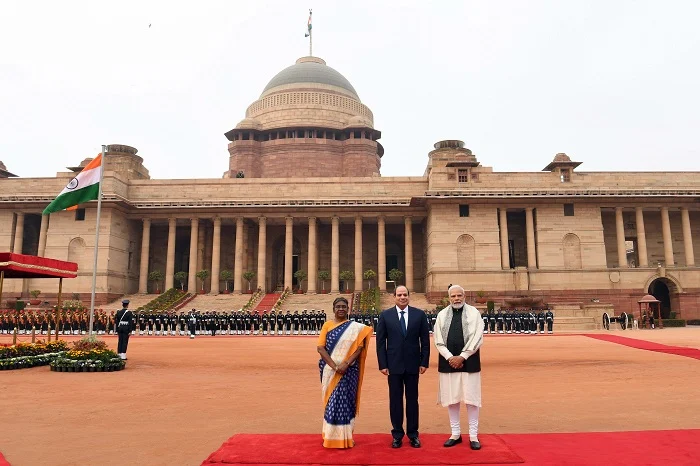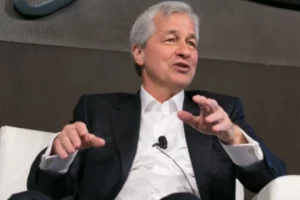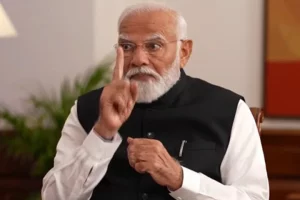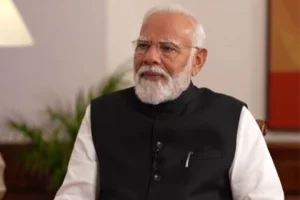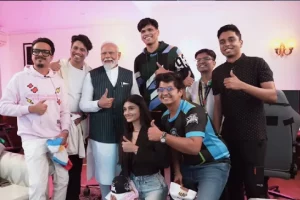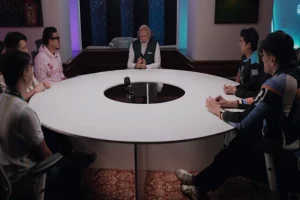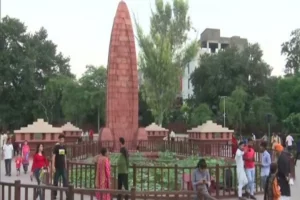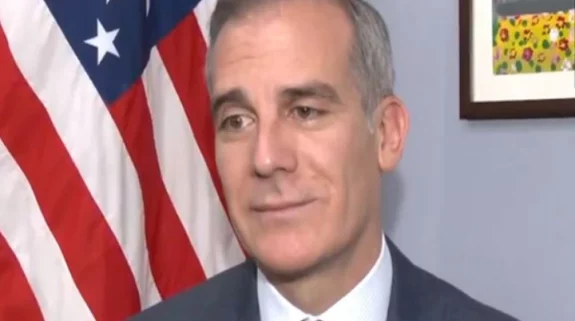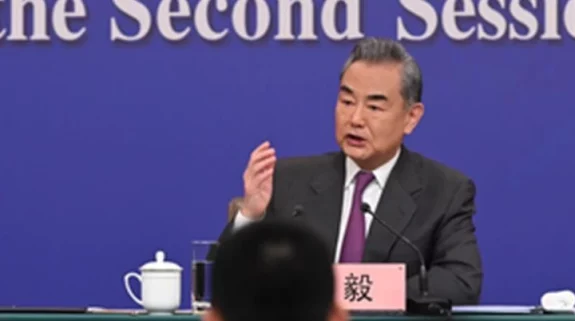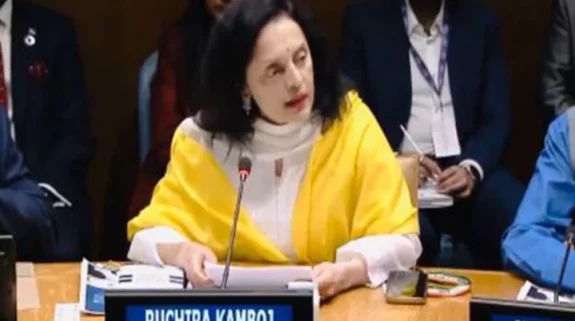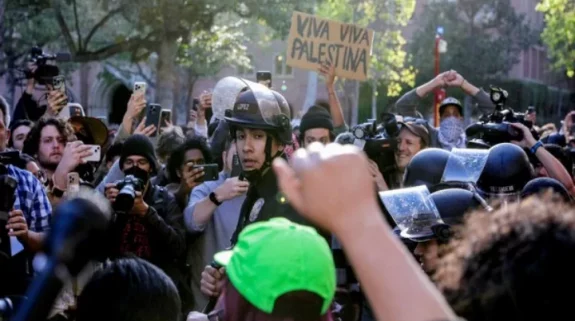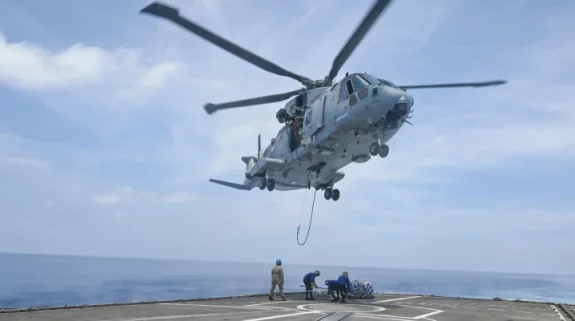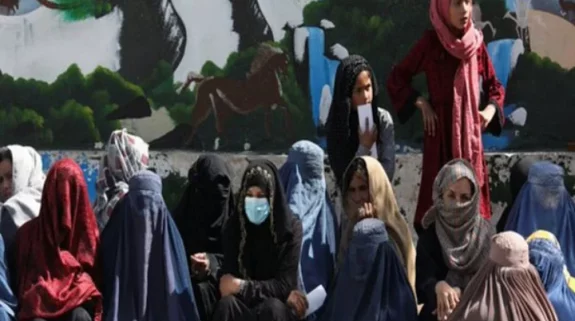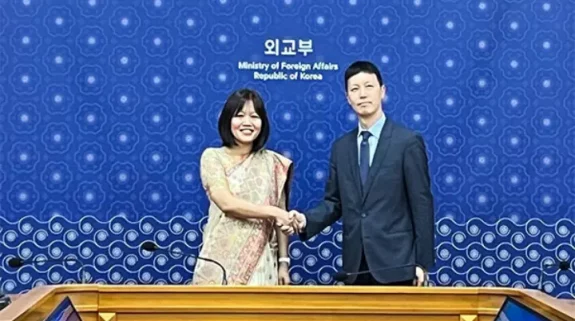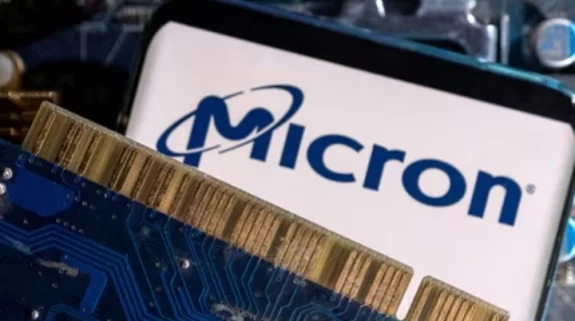President Droupadi Murmu and Prime Minister Narendra Modi have welcomed Egyptian President Abdel Fattah El-Sisi—India’s Chief guest on Republic Day– at Rashtrapati Bhavan.
El-Sisi was also welcomed by several other Union Ministers including External Affairs Minister S Jaishankar, Education Minister Dharmendra Pradhan, Health Minister Mansukh Mandaviya, Commerce Minister Piyush Goyal, kick-starting what is being billed as a “historic visit” to India.
On Tuesday PM Modi warmly welcomed the Egyptian President as he touched Indian soil. “Warm welcome to India, President Abdel Fattah el-Sisi. Your historic visit to India as Chief Guest for our Republic Day celebrations is a matter of immense happiness for all Indians. Look forward to our discussions tomorrow.”
Warm welcome to India, President Abdel Fattah el-Sisi. Your historic visit to India as Chief Guest for our Republic Day celebrations is a matter of immense happiness for all Indians. Look forward to our discussions tomorrow. @AlsisiOfficial
— Narendra Modi (@narendramodi) January 24, 2023
A middle power, with a commanding presence in the Red Sea—the gateway to the Mediterranean Sea via the Suez Canal–Egypt also has an influential presence in the Horn of Africa, as well as North Africa, including resource rich Libya, with which it shares a common border. It also enjoys excellent relations with the Gulf countries especially the United Arab Emirates and Saudi Arabia.
Under El Sisi, Egypt is part of the New Levant, in partnership with oil rich Iraq and Jordan. Exercising strategic autonomy, Egypt partners Israel, Cyprus and Greece in the formation of the East Mediterranean Gas Forum.
From an Indian perspective, Egypt can play a major role in its Indian Ocean Strategy, especially as 500,000 barrels of oil sourced from the United States, Latin America and Algeria passes through the Egypt controlled Suez Canal. India and Egypt have a similar approach to terrorism, especially with groups, including Al Shabab in Somalia and Boko Haram, which can impede free flow of shipping through the Bab el Mandab—the gateway to the Red Sea.
Both countries are also civilizational states, and a geo-cultural exchange between the two countries could follow President El Sisi’s visit.
Before heading to India, a statement released by the Egyptian President’s website said that El Sisi’s visit reflects the convergence between the two countries. “It also reflects India’s profound appreciation for Egypt’s leadership, government, and people, and its keenness to strengthen joint cooperation between the two friendly countries as two of the most important emerging countries which have vital roles regarding various regional and international issues,” the statement added.
India has invited Egypt as a guest nation during its presidency of the G-20 grouping.
Also Read: Why Egyptian President al-Sisi’s visit can expand India’s strategic horizons






